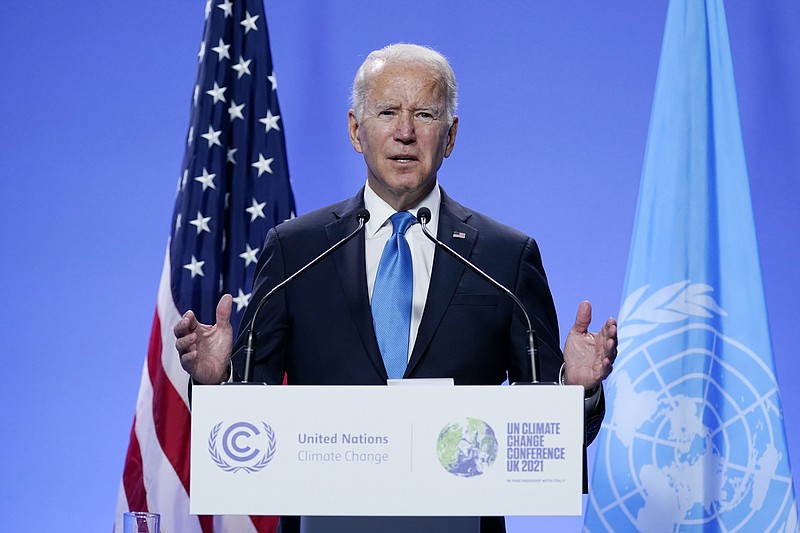NEW ORLEANS (AP) - The U.S. Interior Department today will auction vast oil reserves in the Gulf of Mexico estimated to hold up to 1.1 billion barrels of crude, the first such sale under President Joe Biden and a harbinger of the challenges he faces to reach climate goals that depend on deep cuts in fossil fuel emissions.
The livestreamed sale will invite energy companies to bid on drilling leases across some 136,000 square miles - about twice the area of Florida.
It will take years to develop the leases before companies start pumping crude. That means they could keep producing long past 2030, when scientists said the world needs to be well on the way to cutting greenhouse gas emissions to avoid catastrophic climate change.
The auction comes after a federal judge in a lawsuit brought by Republican states rejected a suspension of fossil fuel sales that Biden imposed when he first took office.
The Democrat campaigned on promises to end drilling on public lands and waters, which account for roughly one-tenth of U.S. energy-related emissions. Yet even as he's tried to cajole other world leaders into strengthening international efforts against global warming, Wednesday's sale illustrates Biden's difficulties gaining ground on climate issues at home.
The administration last week proposed another round of oil and gas lease sales in 2022, in Montana, Wyoming, Colorado and other western states. Interior Department officials proceeded despite concluding that burning the fuels could lead to billions of dollars in potential future climate damages.
"We had Trump's unconstrained approach to oil and gas on federal lands and Biden's early attempt to pause drilling. Now it looks like the Biden administration is trying to find a new policy," said researcher Robert Johnston with Columbia University's Center on Global Energy Policy.
"They're being very cautious about undermining their fragile momentum" on climate issues, he added.
Environmental reviews of the Gulf of Mexico sale conducted under former President Donald Trump and affirmed under Biden reached an unlikely conclusion: Extracting and burning the fuel would result in fewer greenhouse gases than leaving it in the ground.
Similar claims in two other cases, in Alaska, were rejected by federal courts after challenges from environmentalists. Climate scientist Peter Erickson - whose work was cited by judges in one of the cases - said the Interior Department's analysis had a glaring omission: They left out greenhouse gas increases in foreign countries that would result from having more Gulf oil on the market.

